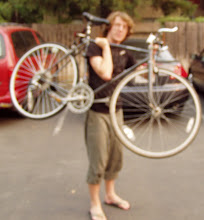Ketchup Bottle Ad
This ad is actually still funny-- though it was probably a lot more true at the time than it is now since opening ketchup bottles has as much to do with force of will as it does with physical strength. The ad would also never appear in modern advertisement, and this is a testament to the cultural changes wrought by second wave feminism. A modern counterpart to the ad might be the "strong enough for a man, but made for a woman" deodorant campaign-- once again they are playing off the fact that men are generally stronger and bigger (and consequently stinkier) than women. Of course, the fun part is that the deodorant campaign's trick plays into the "ra ra" of feminism. Appeals to feminism are not at all uncommon in modern advertising. I'm sure plenty will gripe that it's a cartoonish kind of feminism, to which I say if you're going to complain that media is obnoxiously cartoonish, then you're consuming the wrong media. Vote with your feet.
Sexualization and Objectification
Regarding the sexualization and objectification of women-- this is true and this is long-standing and this is near and dear to advertising, which seeks to seduce. As women make an increasingly significant proportion of the national income (projected to make more than men for my generation), you can also witness the increasing objectification and sexualization of men in the exact same mediums. That trend will undoubtedly continue.
There is a lot of hand-wringing about this trend, seeing it as "making men more effeminate". I think calling it that is missing a lot. This issue touches on a question at the heart of a lot of feminist debate-- how much should equality involve women becoming more like men or men becoming more like women? The other big question of course being "How far is far enough?" I think the end result of feminism will be terribly nuanced, and that in some ways men and women cannot but help to retain distinct identities, and that there's nothing intrinsically wrong with people associating one gender more with some things than others.
To those who feel that objectification itself is inherently masculine, I say that while this is an essentially sexist sentiment, it probably has some merit. You'll note the brief portion where the video discussed the presentation of men as strong, dominant and aggressive-- this is an objectification of character, which may perhaps be an oxymoron, but as the video points out it is certainly an idealization that impacts men's aspirations and expectations, and not necessarily positively.
Mock Rape and Debasement in Fashion Magazines
First of all, its worth noting these are advertisements that are meant to appeal to women. Now you can't take that at face value because they are also self-consciously high art, and the intention is to provoke/confront rather than to please the audience persay. These ads are are playing off feminist ideals. They aren't going up against them as much as they are forcing the audience to think about sexuality and submission/dominance. To treat these ads as merely anti-feminist propaganda is to give the ads' makers and their audience too little credit-- this is part of the modern conversation about sex relations, and it is excruciatingly self-aware.
Role Reversal
The role-reversal is hilarious and perhaps the most educational part of the video, because it inspires reflection on a couple of interesting points.
First, the pictures (for sake of humor, I'm sure) mostly illustrate fat not-especially-attractive men, which is demeaning in its own right and obviously inverts more than just the subject of objectification's gender. It's an unwitting commentary on the too-close relationship between feminism and what I'll call male slobbism (it could less charitably be described as female chauvinism, though it is by no means specific to women).
Second, with the more attractive men playing the role of women, I was struck by how closely they mirrored many fashion ads for men's clothing and accessories (Ambercrombie comes to mind). This comes back to the point that equality in advertising seems to be following right along with growing equality in broader culture, driven of course by the desire to sell things. Advertisements must work within the cultural norms of the time and often, if it is to catch the audience's attention, play off of them. In my humble opinion, the influence of culture on ads and ads on culture constitutes a feedback loop, but a fairly benign one in which the former influence acts as primary driver.

No comments:
Post a Comment